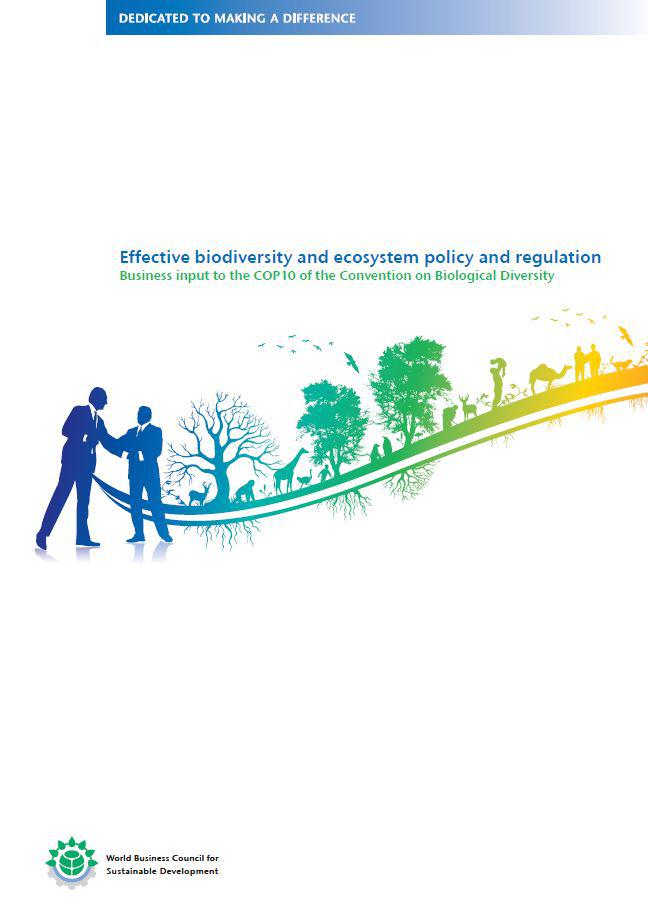
This paper considers a number of related proposals in the broad area of biodiversity and ecosystems policy currently receiving significant attention from national and international policy makers. The WBCSD is supportive of many of these proposals and drawing on the wealth of experience of its member companies is able to offer a number of practical recommendations and a concise summary of views on the relative merits of the various proposals.
Key messages
- The WBCSD strongly supports the key principle of The Economics of Ecosystems and Biodiversity (TEEB) report for policy makers; namely, that biodiversity and ecosystem values should be integrated more consistently and effectively into policy and regulation;
- Businesses have a strong interest in ensuring ecosystems continue to function properly to deliver both business and societal value. To this end, businesses are already helping to deliver improved conservation outcomes through their own actions including through investment in conservation-related research and development, through the creation and strengthening of sustainable supply chains and through programmeswhich build capacity, transfer technology and enhance monitoring and reporting performance;
- Businesses are keen to work more closely with policy makers on the design and implementation of biodiversity and ecosystem related policy and this collaboration can significantly improve the chances of delivering policies that work;
- A framework for closer collaboration between business and policy makers on biodiversity conservation is needed. This framework should include a more defined role for business within the Convention on Biological Diversity as well as in other multilateral environmental agreements;
- Much biodiversity and ecosystem policy and regulation relies on the private sector in its implementation, and in any event, it is often the private sector which has the resources and flexibility to develop and implement solutions at scale. For these reasons, as part of increased involvement from business it is essential that overarching objectives and targets are designed to be relevant for business;
- New biodiversity and ecosystem policy and regulation should draw from successful examples from other policy fields and should seek to build on and scale up successful private sector voluntary initiatives in the field of biodiversity and ecosystem conservation;
- New biodiversity and ecosystem policy and regulation should also be based on sound principles, and section 1.4 in this paper provides a view from business to inform these. Principles should include providing clear signals for business, creating a level playing field, recognizing the importance of property rights, being mindful of potential economic and social impacts and adaptable to cultural differences between nations;
- This paper primarily focuses on proposals for new biodiversity and ecosystem policy and regulation. However, it is important to note that in many cases it is not new policy and regulation that is required, but the capacity and resources for more effective implementation and enforcement of existing policy and regulation;
- Beyond policy and regulatory reform, governments can take a leading role in the implementation of measures to enhance biodiversity and ecosystems by using their direct influence over state owned enterprises to drive the implementation of such measures.
Click here to order this report on earthprint.com (Product code: WBCSD0174)

